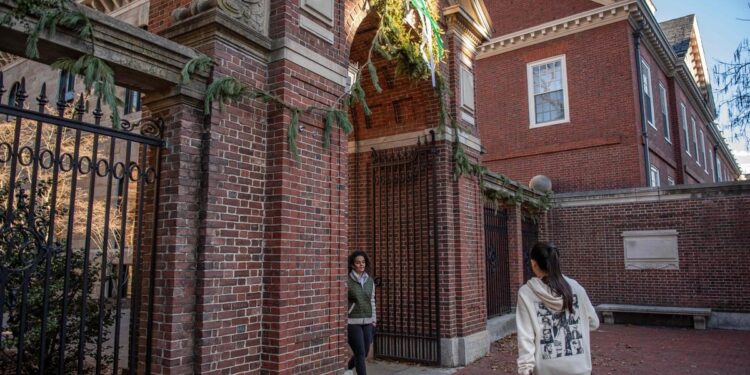The prestigious American university Harvard has apologized for holding for almost a century a French book from the 1880s bound with human skin, which will be removed from the work.
In a press release received Thursday, the library service of the oldest university in the United States indicated that it had “removed human skin from the binding of a copy of Arsène Houssaye’s book + Des destines de l’âme + (1880s) held by Houghton Library.
The Harvard Libraries service recognizes its failures in this matter which affects the dignity of a human being whose remains were used to bind the book. We apologize to those who were affected.”
The university, founded in 1636 in Cambridge, a suburb of Boston (Massachusetts, northeast), deplored that these “practices do not conform to the ethical standards that it has set for itself.”
Arsène Houssaye (1814-1896) was a French writer, journalist, literary critic and collector whose work “Des destines de l’âme” is a reflection and meditation on life after death.
The Harvard Library Service revealed in 2014, after scientific tests, that this book, which it has owned since 1934, from a former student from the beginning of the 20th century, was covered and bound with the flesh and skin of a a human.
AFP
Ten years ago, Harvard explained that the French writer had shown his book to a doctor and bibliophile, Ludovic Bouland (1839-1933). The latter then had the idea of linking the work with the skin of a patient suffering from mental disorders who died suddenly. Without “any consent,” Harvard specifies.
Experts call this practice “anthropoderm bibliopegy.”
Doctor Bouland left a note reproduced in 2014 in the press: “This book is bound in parchment human skin (…) Looking at it carefully, you can easily see the pores of the skin. A book on the human soul deserved to be given human clothing.
Harvard said that its “library is now researching the provenance and biographical elements of the book, on Bouland and the anonymous patient and is consulting with the competent authorities at the university and in France to determine how to dispose of these human remains in a respectful manner”.
The New York Times recalls that Harvard, which maintains libraries and museums, had completed in 2022 a large inventory of more than 20,000 human remains in its collections of books and works of art.
A way of recognizing its role in slavery and colonialism from the end of the 17th century, according to the newspaper.



